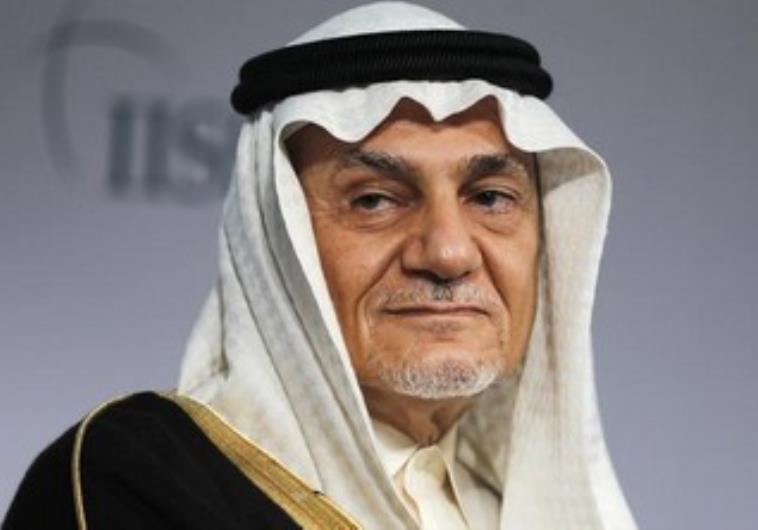Washington – Prince Turki Al Faisal Al Saud, Chairman of the King Faisal Center for Research and Islamic Studies, advised the next U.S. President to adopt a new policy and strategy in the Middle East based on a strong leadership.
Prince Faisal warned Washington there will be tension and struggle and called for a solution of the Syrian crisis that allowed Russia and Iran to interfere in four countries in the region.
Saud stressed that the Iranian interference in the region’s affairs doesn’t achieve stability and security. He criticized the U.S. Congress for passing the Justice Against Sponsors of Terrorism Act (JASTA) law saying it will affect U.S. interests all over the world.
Speaking at the National Council’s Annual Arab-U.S. Policymakers Conferences, Prince Faisal said that the Obama Administration was aware of the risks of the JASTA law and vetoed it for that. He added that going ahead with the law will destabilize the trust in the U.S. economy and affect relations between Washington and its allies in the region in countering terrorism.
The Prince reiterated the effective role of Saudi Arabia in fighting terrorism, saying that suing the kingdom will destroy the long-term strategic relations between the United States and Saudi Arabia.
Faisal condemned the lack of a clear anti-terrorism policy and that despite all efforts to fight terrorism locally and internationally, threats are increasing which only means the policies are failing.
The prince also criticized the Russian intervention in Syria, where Russia supported the regime which killed over 500,000 civilians and displaced over 11 million Syrians.
Prince Faisal said that both the U.S. and Russia are members of the Security Council and responsible for maintaining the international security and setting a strategy to combat terrorism.
The prince stressed that if the upcoming U.S. president’s leadership wasn’t strong, then the whole world will face struggles and tension. He suggested that the new president visit the region and meet with allies.
Former U.S. Minister of Defense Chuck Hagel was optimistic about the future of the Middle East, despite the wars in the region. He stressed on the importance of increasing cooperation and coordination between countries in the region and the U.S. to fight terrorism.
Hagel admitted that the U.S. made few mistakes in the past, yet it made many achievements and developments in its defense system in the Middle East.
Hagel also said he believes there is a future for the region which will begin with the new elected president.
The former minister pointed out that the U.S. is still responsible to fight terrorism, especially in the Middle East. He stated that the nuclear agreement with Iran is important to change Iran’s policies in the region. He added that Iran surely changed recently, but whether it is for the better or worse, time will only reveal.
Hagel said he can’t predict what the next 15 years will bring, but it is important for all countries to understand each other to achieve their goals.
He also stressed that cyber war is serious and should be fought.
John Duke Anthony, Founding President and CEO of National Council on U.S. – Arab Relations, said that the United States should increase its efforts to maintain its relations with the Arab states. He added that American people should be well educated about the Arab countries, maybe then the coming generation will have better leaders in dealing with Arabs.
Khalaf Ahmad Al Habtoor, Chairman, Al Habtoor Group, said that relationship between the United States of America and the Arab countries is at a turning point.
He pointed out that the alliance between the U.S. and the Arab countries, mainly the GCC States, has proven to be paramount for regional and global stability, prosperity and peace.
Habtoor did however criticize U.S. relations with Iran despite Tehran officially supporting terrorism. He added that both the U.S. and Iran have displayed exceptional commitment to the nuclear deal, and now a nuclear framework has been agreed. It is easy to understand Iran’s willingness to compromise when sanctions have bit hard. But why has the Obama administration made supreme efforts to shake hands with America’s long-time enemy is perplexing.
Habtoor called for a ‘safe zone’ in Syria, where Syrians can have a safe shelter from Assad while a solution is being found. A safe zone protected by the NATO.
He stressed that the criminal Bashar al-Assad should be led to the International Criminal Court and not negotiated with.
Mohammed Abou El-Enein, Chairman of Cleopatra Group, said that the elected U.S. administration should seize the economic opportunities in Egypt. He called for the activation of free-trade agreement with the U.S. and stressed on importance of maintaining security and stability in the Middle East.
National Council on U.S.-Arab Relations’ 25th Annual Arab-U.S. Policymakers’ Conference, “U.S.-Arab Relations at a Crossroads: What Paths Forward?” was held at the Ronald Reagan Building and International Trade Center in Washington, DC on October 26-27, 2016.
